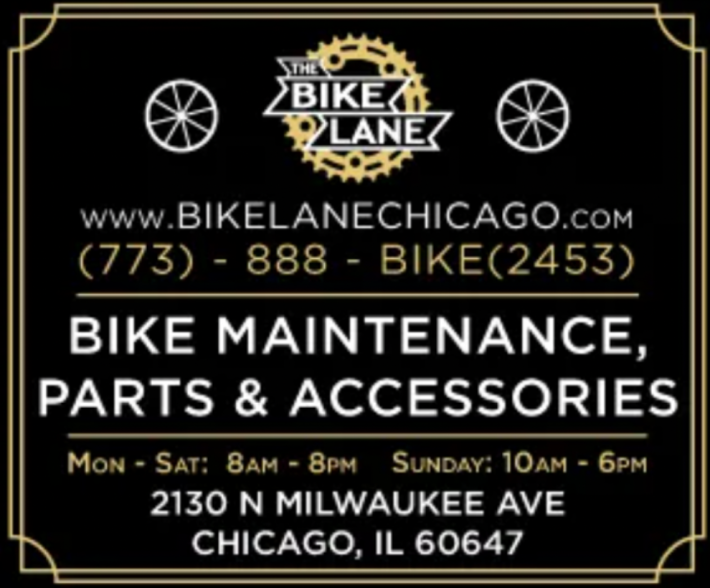
Evanston's Chicago Avenue Corridor Project, including the protected bike lane extension proposal, will be discussed at a community meeting on Tuesday 12/10, 7-9 p.m. at Robert Crown Community Center, 1801 Main St. in Evanston.
I'm not sure if Evanston has seen this much controversy since the late 1800s, when suffragist Frances Willard led the locally based Women's Christian Temperance Union in the fight against Demon Alcohol.
As recently discussed here, the City of Evanston has proposed extending the suburb's existing two-way protected bike lane on Sheridan Road and Chicago Avenue. It would go 1.9 more miles south from its current southern terminus at Davis Street to Howard Street. That would create a low-stress, north-south bikeway that would run 3.5 miles, all the way between Evanston's border with Chicago to its boundary with Wilmette, the adjacent North Shore 'burb. Sounds great, right?
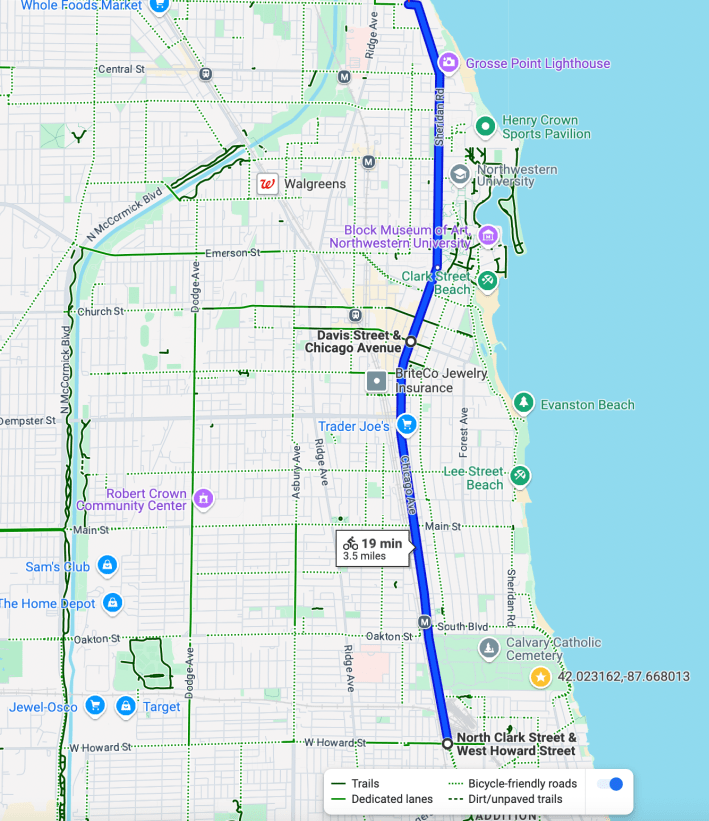
Not so fast, say some local merchants and residents. They're balking at the bikeway idea, because it would involve converting existing car parking spots on the east side of Chicago Avenue to make room for the bikeway.
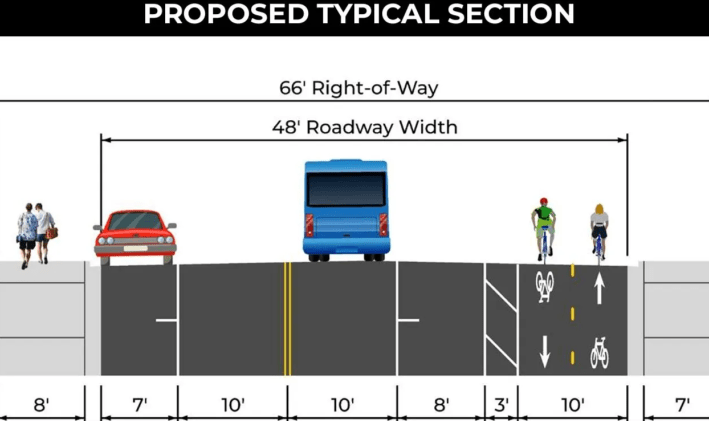
Over 30 merchants, business managers, and landlords sent a letter to Evanston Mayor Daniel Biss and other City officials insisting that the parking conversions would "cause significant reductions in sales" and reduce tax revenue. They argued that rerouting bike and scooter riders away from the Chicago Avenue retail district onto the parallel Hinman and Judson avenues to the east would be a better solution.
A very similar letter was sent to the City by 30 local residents, who said they "participate in a variety of individual, small and medium-sized cycling groups based in Evanston," opposing the Chicago Avenue protected bike lane. "We frequent a number of businesses in this corridor, and that loss of parking would be devastating to them." They too called for diverting bike riders from the business strip onto Hinman and/or Judson.

That would be a less direct and intuitive north-south route, because those avenues terminate just north of Calvary Catholic Cemetery, a barrier between Evanston and the city of Chicago. It would also discourage bike and scooter riders, who – believe it or not – do spend money at shops and restaurants, from patronizing businesses on Chicago Avenue.
The residents who signed the letter seem to be the kind of self-described "avid cyclists" who frequently appear at community meetings and in TV news reports and Internet comment sections, criticizing bikeway plans and/or bike riders. Outside Magazine columnist Eben Weiss once joked that these folks are "Cyclists' Enemy Number One."
Fanning the flames of the Chicago Avenue controversy was an article by Bob Seidenberg published last Sunday on the Evanston RoundTable news website, "Opposition mounting against proposed Chicago Ave. bike lane." (The title of this Streetsblog post includes a tongue-in-cheek spin on Seidenberg's headline – more on that in a bit.)
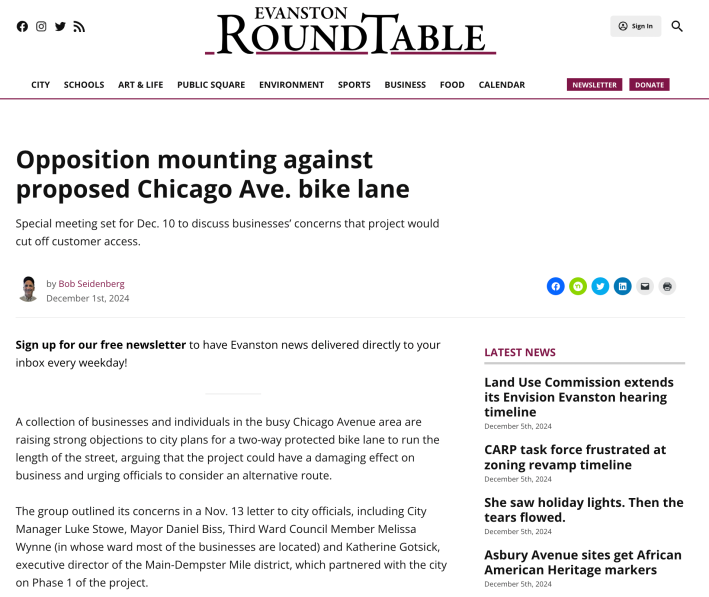
The RoundTable article features lots of griping about the project. "When you wipe out 75 to 100 parking spaces on the east side of the street and make access much more difficult, you are going to permanently harm or close numerous small businesses," asserted developer Kent Swanson.
However after that quote was published in the RoundTable article, Seidenberg had to run a correction. He acknowledged that the City currently says the project would only convert 66 parking spots, or roughly a quarter of the 250 car spaces along Chicago Avenue between Davis and Howard. Many of them would be next to the cemetery, not storefronts.
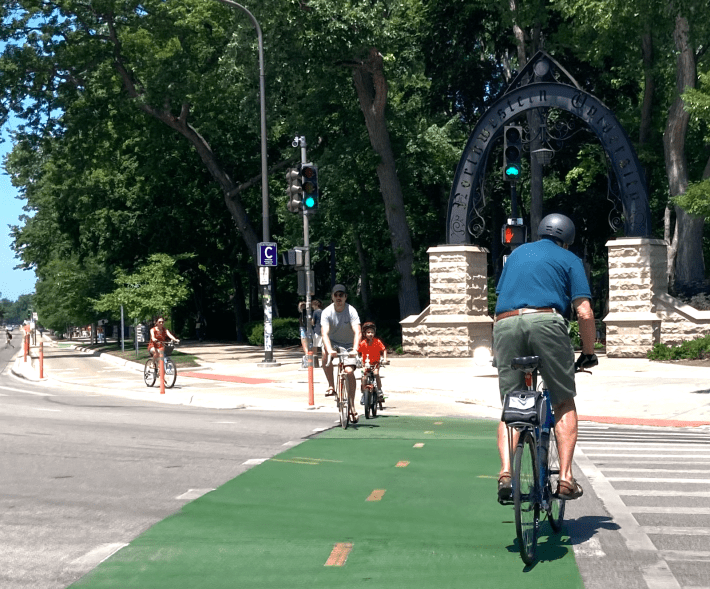
Nonetheless, local resident Laura Kushner told Seidenberg that the new protected lane would "create a plethora of safety and accessibility issues for area residents. It significantly infringes on customer access to many businesses and it increases traffic congestion on Chicago Avenue."
In reality, making it safer and easier for patrons to bike or scoot to these establishments would help reduce traffic jams. Moreover there's evidence that by improving sustainable transportation access to the businesses, the Chicago Avenue protected lane could actually help increase overall sales on the corridor. As Streetsblog previously discussed, comparisons of revenue data before and after parking-to-PBL conversions in New York City and Seattle showed that the changes had a positive overall effect on sales.
"Kushner maintained that the narrowing of lanes and removal of parking will actually make Chicago Avenue less safe because there will be nowhere for cars and trucks to pull over," Seidenberg reported. So she's saying motorists would be able to pull over into that part of the road to make way for ambulance, firetruck, and police car drivers if that lane was full of parked vehicles, rather than a bikeway?
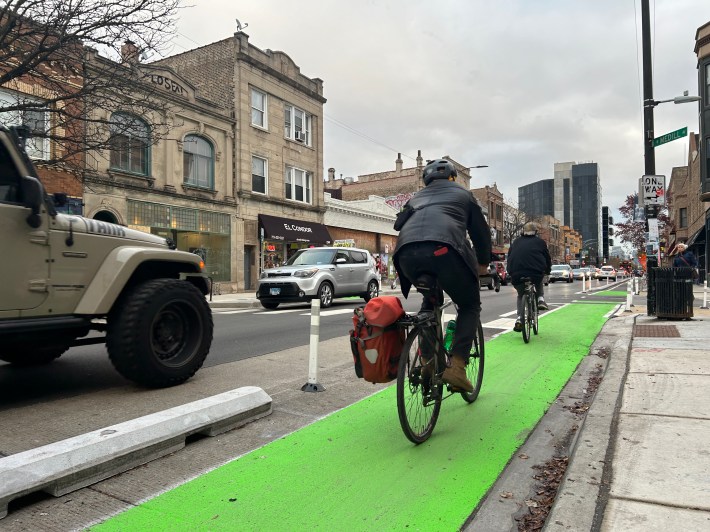
For the umpteenth time, this is a case of a resident claiming that protected bike lanes will cause major problems for first responders. But the reality is that they don't.
Kushner gets several more paragraphs in the RoundTable article to complain about other aspects of the project and the planning process. But I won't bother to unpack all of her many grievances.
Contrary to what you might gather from Seidenberg's article, it appears many Evanstonians are in favor of the protected bike lanes. Most of the 18 comments below the piece this afternoon voiced support for the project. One cited Streetsblog's previous discussion of the benefits of converting parking to protected lanes in other cities.
Some of the commenters argued that, in addition to amplifying a falsehood about the number of parking spots that would be removed, Seidenberg's reporting was slanted in favor of the naysayers. "No mention of all the individuals and groups strongly in support of the plan?" commented Robert Keding, a member of the advocacy group the Evanston Transit Alliance. "Seems like a biased article, I’m afraid. Protected bike lanes are needed on Chicago Avenue desperately, and there are many more in favor than this vocal minority spreading misinformation and conjecture about the project."
While some cyclists would rather bike in the road to keep their pace up, we believe most people who bike put safety over speed. If you think the same, please sign our letter showing support for the Chicago Ave Protected Bike Lanes.docs.google.com/forms/d/e/1F...
— Evanston Transit Alliance (@evanstoneta.bsky.social) 2024-12-02T13:23:42.908Z
Keding later reached out to Streetsblog to let us know his organization had posted a letter of support for the Chicago Avenue protected lanes, urging Mayor Biss and other officials to move forward with the project. In contrast to the 62 merchants and "avid cyclists" who signed the two opposition letters, as of today, more than 250 residents and businesses had signed on to ETA's pro-bikeway document.
"If you could help us get the word out from our perspective it would be greatly appreciated," Keding said. "The local media up here seems to be playing up the controversy angle and neglecting to reference us at all."
Evanston RoundTable, please do better next time.
Sign the Evanston Transit Alliance's letter in support of of the bike lane proposal here.
Evanstonians can contact their local City Council member to express support for the project.

Did you appreciate this post? Please consider making a tax-deductible donation, to help keep Streetsblog Chicago's sustainable transportation news and advocacy articles paywall-free.





